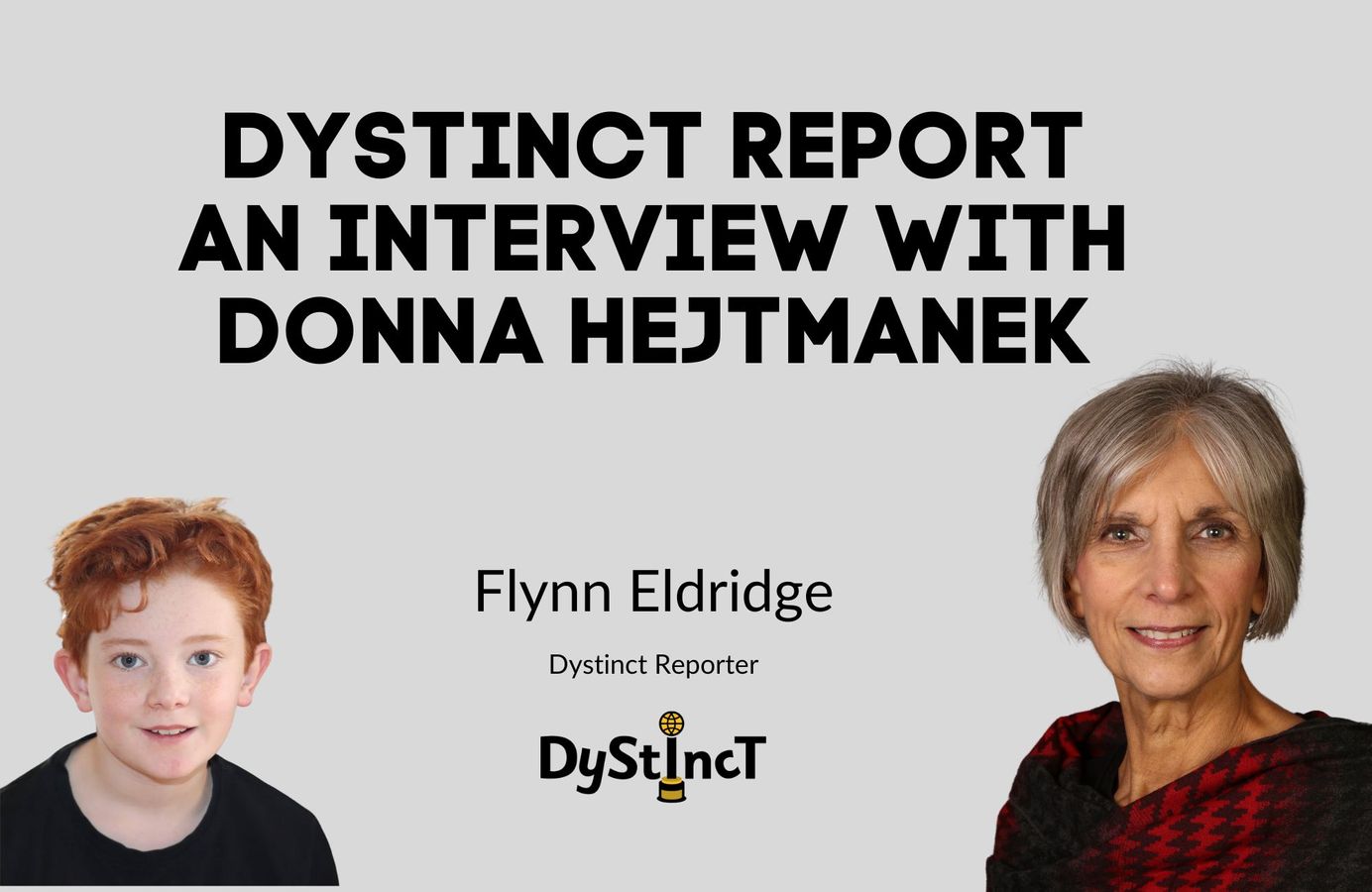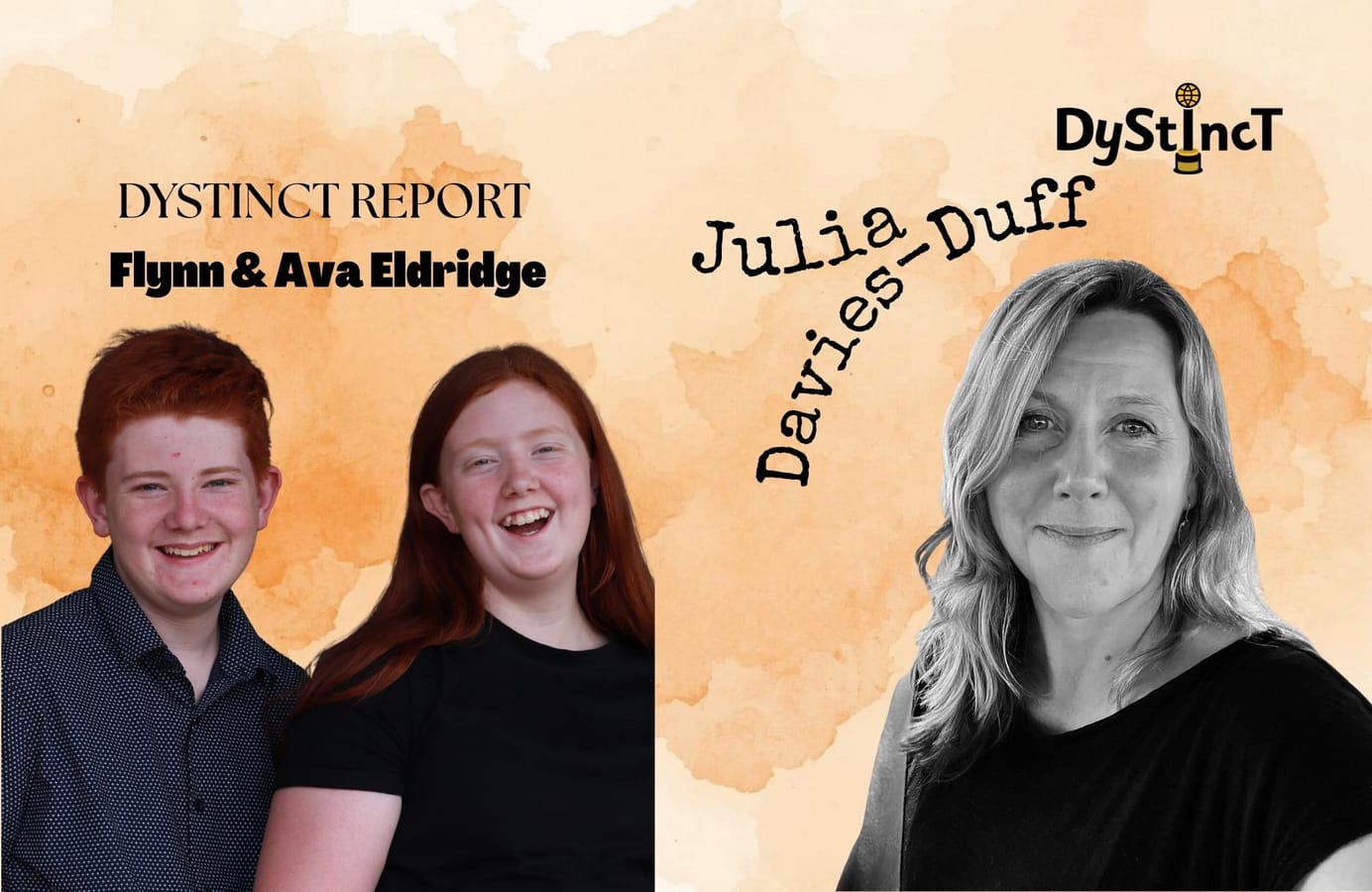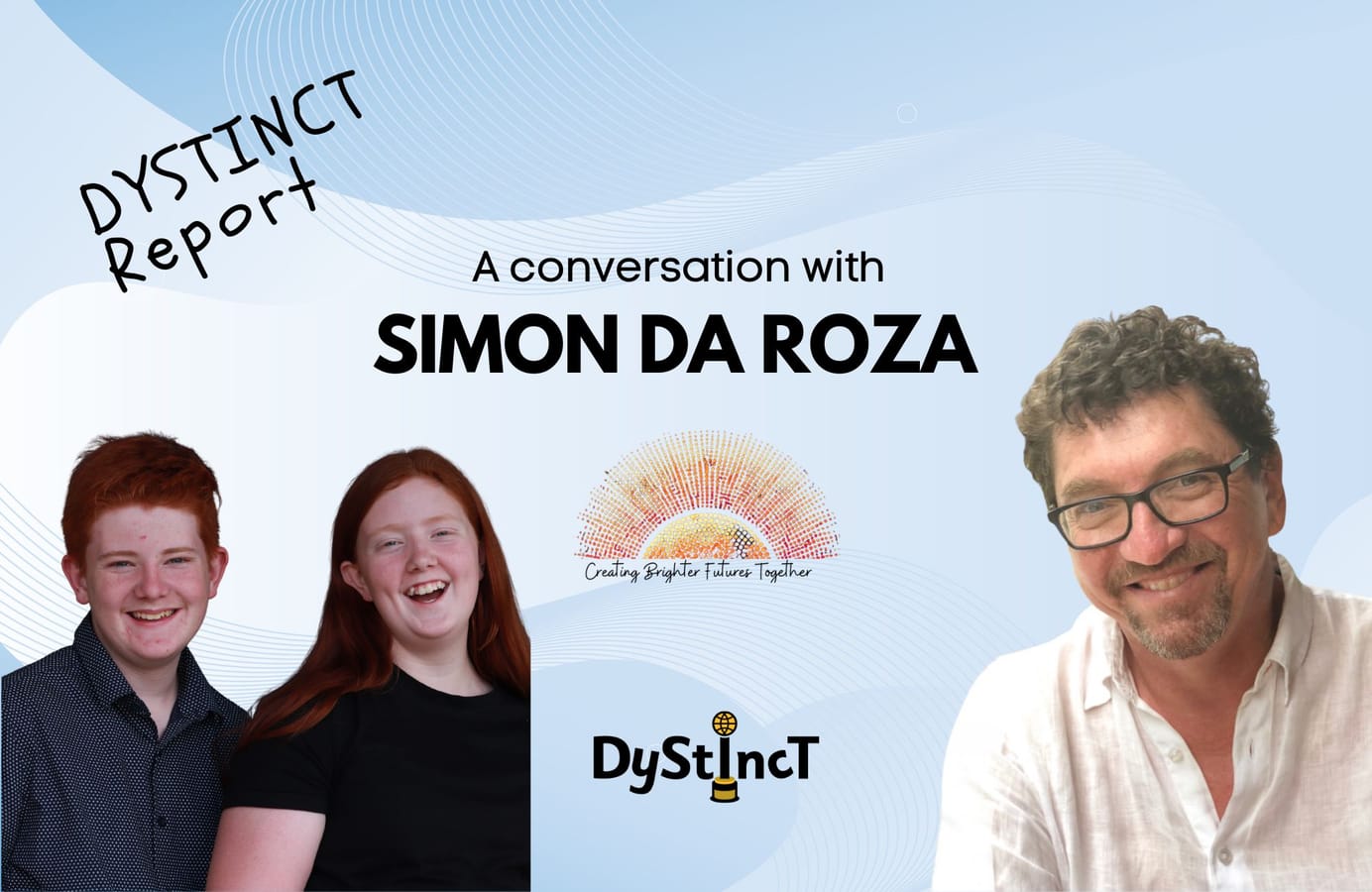
Issue 13: Dystinct Report - An interview with Donna Hejtmanek | Flynn Eldridge
Ten-year-old journalist Flynn Eldridge has a chat with Donna Hejtmanek about her Facebook group, The Science of Reading- What I Should Have Learned in College, and her viewpoints on the Structured Linguistic Literacy approach.
Donna Schultz Hejtmanek is a retired special education teacher and reading specialist of 41 years from Wisconsin. She spends her time in retirement advocating for dyslexia legislation, administering the Facebook group, Science of Reading-What I Should Have Learned in College, and consulting and coaching with school districts on implementing the science of reading.
Dystinct reporter Flynn Eldridge had a chat with Donna Hejtmanek about her Facebook group, The Science of Reading- What I Should Have Learned in College, and her viewpoints on the Structured Linguistic Literacy approach.
Excerpts from the Interview
When did you start helping people who didn't know how to read and write?
I became a teacher back in 1976 and started working with students in 1977. That was my first job.
How many people with learning differences would you have helped in the past?
I've put in about 41 years of working with students. I was a teacher in a public school, and I also worked as a private tutor. I would say several hundred students, maybe more like five or six hundred students. But something happened to me in 2019 that increased the number of people I helped, and that is my Facebook page.
Why did you start the Science of Reading Facebook group?
Back in 2018 and 2019, I was doing some work for Wisconsin legislators. I was trying to pass a law to help kids with dyslexia. It was very frustrating because, when you have a legislative bill to be passed, you have to testify to support or not support it. I was testifying to support the bill, and I remember talking to the Senate Education Committee, and all these very important people were there. I told them that I was frustrated with the training I got in college because I didn't learn how to teach kids to read. And so that was the start of my Facebook page. When I discovered that Facebook had groups, I started the group because I was upset that I didn't learn all this good information in college and how to teach kids to read.
This post is for paying subscribers only
SubscribeAlready have an account? Log in


